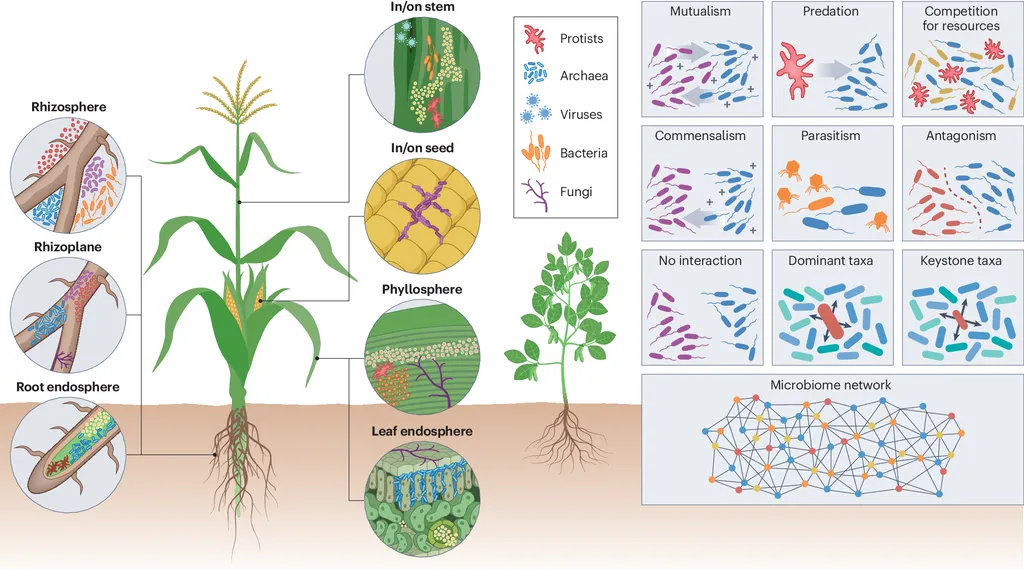In the quest to reduce synthetic inputs in agriculture, scientists are turning to an often-overlooked ally: the microscopic communities that call our seeds home. A recent review published in *Discover Agriculture* sheds light on the intricate world of seed microbiomes and their potential to revolutionize crop establishment and sustainability.
The study, led by Kehinde Adewole Adeboye from the Department of Agricultural Technology at Ekiti State Polytechnic, explores how bacteria, fungi, archaea, and viruses associated with seeds influence germination, seedling vigor, and long-term plant resilience. These microbial communities, it turns out, play a pivotal role in seed physiology, offering a promising avenue for eco-friendly agricultural practices.
“Seed-associated microorganisms can enhance nutrient mobilization, regulate phytohormones, and buffer stress, all of which contribute to improved germination and crop establishment,” Adeboye explains. “However, pathogenic taxa can also reduce seed viability through toxin secretion, decay, and competitive exclusion.”
The review highlights that the effects of these microbes are stage-specific and genotype-dependent, mediated by complex microbe–microbe interactions. This complexity presents both opportunities and challenges for agricultural applications.
One of the most exciting prospects is the development of microbial-based seed treatments. Advances in microbial engineering, bio-priming, and seed coating technologies have created new opportunities for harnessing beneficial microbes to improve germination and crop establishment under both optimal and stressful conditions.
“Emerging technologies such as synthetic microbial communities, nano delivery systems, and CRISPR-based strain optimization offer promising avenues for enhancing the efficacy and scalability of microbial-based seed treatments,” Adeboye notes.
However, the path to commercialization is not without its hurdles. Challenges in detection, strain compatibility, and large-scale application need to be addressed. Moreover, potential biosafety concerns, such as horizontal gene transfer, must be carefully considered.
The review presents a conceptual framework for integrating microbial-based solutions into seed systems, aiming to enhance agricultural sustainability in a changing climate. As the agriculture sector grapples with the need to reduce synthetic inputs and adapt to climate change, the insights from this research could shape future developments in the field.
By harnessing the power of seed microbiomes, farmers may soon have access to more resilient and sustainable crop establishment methods, ultimately contributing to a more secure and eco-friendly food system. The potential commercial impacts are substantial, offering a glimpse into a future where microbial communities play a central role in agricultural practices.

